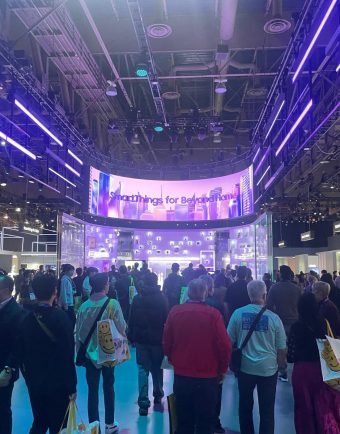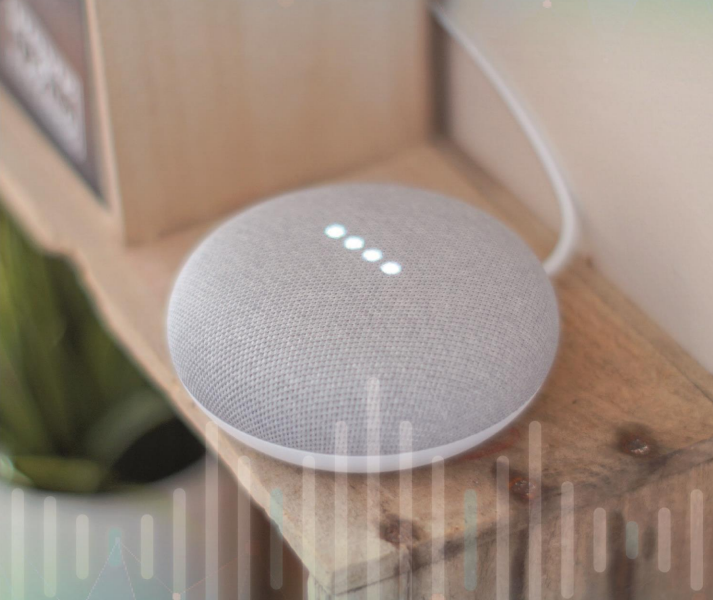

Přejít k obsahu | Přejít k hlavnímu menu | Přejít k vyhledávání

It’s just a single generation. Just twenty years. In the year 2000, we bought the first push-button mobile phones, started exchanging e-mails on the slow internet, and tuned in to a few Czech channels on television. Whoever could copy the CD was the street hero. Sure. Twenty years later, everything is completely upside down. Mobile phones know much more about us than we would like. They have four cameras; they are our black box, in which we have dozens of applications, thousands of photos and practically our whole personal life. The Internet is so ubiquitous that it’s hard to find places where its signal still can’t reach. Netflix, HBO or Youtube are rolling out classic programs and CDs are a long dead medium. Audio-visual content is not saved but streamed.
The development of technology is so bombastic that manufacturers have no problem coming up with new solutions, but rather manage to place them on the market at all before selling them to at least someone before another avalanche of news. We talk about artificial intelligence, self-driving cars, smart neighbourhoods, industry automation.
Paradoxically, the less we actually physically work out, the more assistants we have. Even for such common things as turning on the lights, switching the TV program, or locking the house. Do we really need this, are we asking ourselves? Probably not, but we enjoy it, we often answer. This is exactly what the biggest technology giants are betting on. That is why the voice assistants of Google Home or Amazon Alexa are now also part of the offer of the iNELS brand, which is one of the leading European brands in the field of relays and electrical installations.
“If a certain amount of fun is combined with the strong public relations and the biggest global players can do it, you have a good chance that people will start using it over time. Today, it is still taken as a fad, yet in the Czech Republic there are now almost a hundred thousand households in which they actually use these voice assistants. Of course, it often doesn’t make any sense at all, but even this will come over time, “says Jiří Konečný, owner and founder of Holešov’s ELKO EP, which has been developing and improving its own smart technologies for many years.
For many years, the company has focused on households, today it focuses more on office buildings, hotels, industrial complexes or agricultural areas. Largely because it is very difficult to compete with global leaders in smart technologies for end users. “We have our own development and more than 250 employees who can launch new patents year after year. But the machinery of Amazon, Google, Samsung, Siemens and other companies that set trends today is not worth resisting. On the contrary, we are therefore increasingly focusing on interconnecting relays in larger spaces. There, the competition is orders of magnitude lower, because it requires more professional background and profits are not so massive. On the contrary, it is an attractive segment for us. With higher margins and significantly lower pressure, “adds Jiří Konečný.
But back to the voice assistants, which are connected to the iNELS RF electro-installations and allow you to control everything using a mobile phone or speakers located in the apartment – in the case of Google Home. With Alexa from Amazon, there are even more usable devices. Mobile phones, televisions, speakers and more. At you command, your assistant jumps as you whistle. Turns off the light, locks, regulates the temperature, turns on appliances.
Gone are the days when the assistants did not understand you. That’s why we add some numbers in the end. Google already reports a 95% chance that Google Home will recognize the word you spoke. Unless forecasts slow down due to coronavirus, voice-based shopping is expected to be worth $ 40 billion by 2022. 60% of smartphone users have tried voice search at least once in the last year. And 55% of teenagers use voice search daily. 81% of all operations will be done correctly by Google Home.